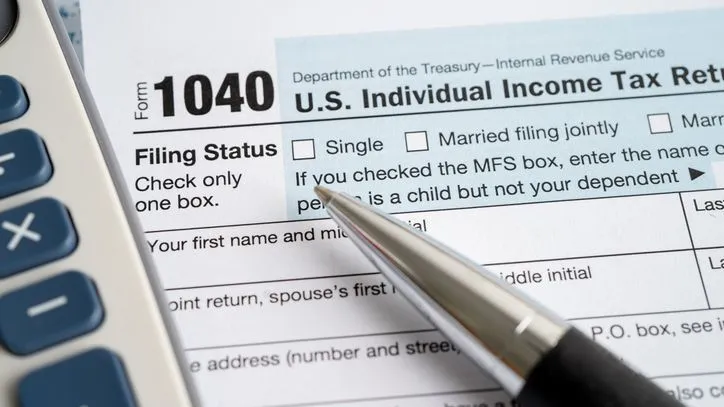California’s high tax rates can significantly impact your rental income, reducing the overall profitability of an investment property. If you are a real estate investor wondering how to pay no taxes on rental income in California – or at least how to reduce your tax bill – it helps to know how to pay less income tax on rental income. With careful planning and a thorough understanding of the state’s tax laws, it is possible to minimize your tax burden and keep more of your rental income.
A financial advisor with tax expertise can be a valuable resource for investors who want to optimize their portfolios for taxes. Connect with an advisor today.
How Does California Tax Rental Income?
Rental income is subject to both federal and state taxes.
On the federal level, rental income is typically reported on Schedule E of the IRS Form 1040. After accounting for allowable deductions, such as mortgage interest, property taxes, insurance and depreciation, the net income from your rental properties is subject to federal income tax.
California rental income is also taxable at the state level. Rental income is typically taxed as ordinary income, so it is subject to California income tax rates that can reach as high as 12.3% for high earners.
This tax applies to all rental income you receive, including rent payments, any additional tenant fees and payments for services like utilities if they are included in the rent. Since California does not offer a separate tax treatment for rental income, this can result in a significant tax bill, especially for landlords in higher tax brackets. However, understanding the deductions and credits available can help reduce your overall tax liability.
How to Pay Less Taxes on Rental Income in California

Reducing your tax liability on rental income in California involves using available deductions and tax strategies. These strategies can help you reduce income tax on rental income.
- Keep detailed records. Maintaining complete and organized records of all rental income and expenses is essential for accurate tax reporting. Good records help ensure you capture all available deductions while ensuring you are prepared in the event of an audit.
- Maximize deductions. You can deduct many operating costs from your rental income, including these:
- Mortgage interest
- Property taxes
- Insurance
- Repairs
- Maintenance
- Utilities
- Advertising
- Property management fees.
- Deduct travel expenses. If you travel to your rental property for maintenance or management purposes, you may be able to deduct related expenses, such as mileage, airfare, lodging and meals if the travel is business-related.
- Take advantage of depreciation. Depreciation allows you to recover the cost of your rental building (excluding land) over 27.5 years. This non-cash deduction lowers taxable income while maintaining your cash flow.
- Use a 1031 exchange. When selling a rental property, a 1031 exchange allows you to defer capital gains taxes by reinvesting the proceeds into another qualifying property. This helps preserve investment capital.
- Invest in energy-efficient upgrades. Making energy-efficient improvements—such as installing solar panels or upgrading windows—can qualify for state or local incentives and tax credits, while also adding value to your property. This is particularly important for California property owners.
- Hire a professional property manager. Property management fees are deductible. In addition to reducing taxable income, hiring a manager can free up your time and help ensure compliance with state and local laws.
- Separate personal and rental finances. Using separate accounts for rental property income and expenses helps with tracking while reducing errors and simplifying tax preparation.
- Time deductible expenses. When possible, schedule deductible expenses—like repairs or prepaid property taxes—within the tax year to reduce that year’s taxable rental income.
- Understand passive activity loss rules. If your rental property operates at a loss, you may be able to deduct that loss against other income, depending on your income level and involvement in the activity.
- Use the right legal structure. While forming an LLC or other entity does not automatically reduce taxes, it can help with expense tracking and long-term planning.
- Work with a tax professional. An experienced tax advisor can help identify available deductions, apply complex tax rules and plan for future liabilities, which is especially useful for investors with multiple rental properties or growing portfolios.
Bottom Line

Rental income is taxed as ordinary income in California, which is why many investors frequently ask how to pay less income tax on rental income in California. With tax-efficient strategies, you can reduce your liability. You can keep more of your rental income in your pocket by maximizing deductions, taking advantage of depreciation and using 1031 exchanges.
Real Estate Tax Tips
- Cost segregation is an advanced tax strategy that accelerates the depreciation of certain components of a property, allowing investors to significantly reduce taxable income. By identifying and reclassifying building components into shorter depreciation schedules (such as 5, 7, or 15 years instead of the standard 27.5 or 39 years), investors can increase their depreciation deductions early on and defer taxes. This strategy can work especially well for commercial properties or high-value residential properties.
- A financial advisor with tax planning expertise can help you leverage potential tax incentives and reduce the tax liability of your real estate portfolio. Finding a financial advisor doesn’t have to be hard. SmartAsset’s free tool matches you with vetted financial advisors who serve your area, and you can have a free introductory call with your advisor matches to decide which one you feel is right for you. If you’re ready to find an advisor who can help you achieve your financial goals, get started now.
Photo credit: ©iStock.com/MattGush, ©iStock.com/sasirin pamai, ©iStock.com/Vladimir Vladimirov
